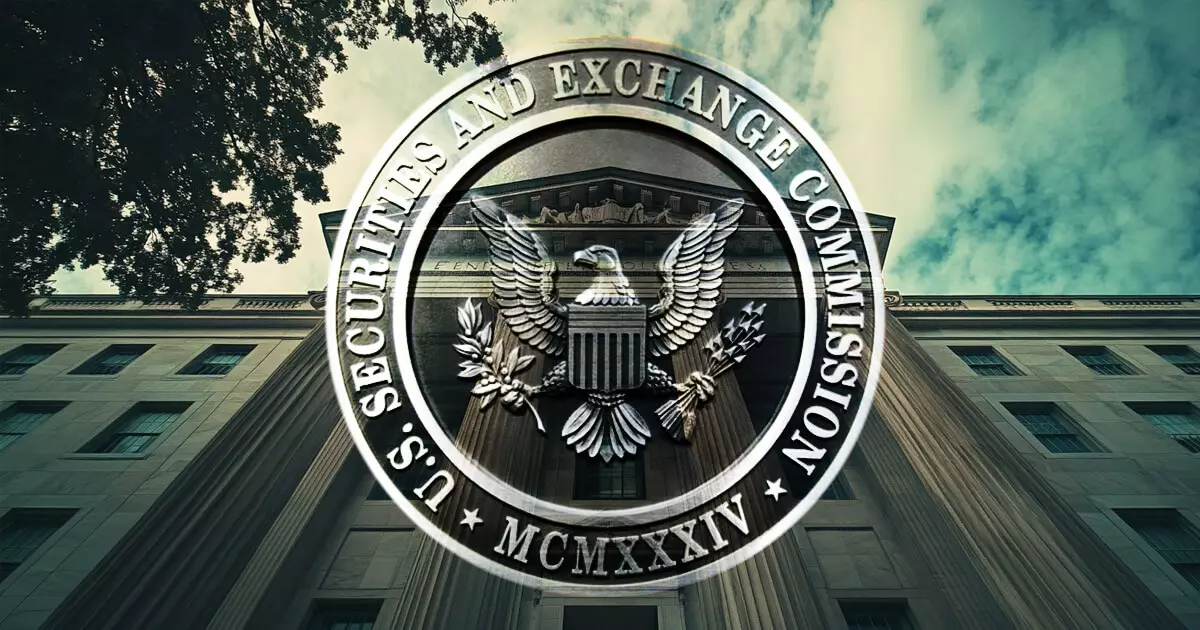TrustToken and TrueCoin, the driving forces behind the TrueUSD (TUSD) stablecoin, recently reached a notable settlement with the U.S. Securities and Exchange Commission (SEC). The settlement was influenced by allegations suggesting that the companies engaged in fraudulent and unregistered offerings of investment contracts, raising substantial concerns regarding investor protection in the rapidly evolving landscape of cryptocurrency. As part of this agreement, TrustToken and TrueCoin are obliged to pay a combined total of $700,000 in penalties and disgorgement, even though they did not admit to the SEC’s findings.
The companies expressed their willingness to avoid the complexities and distractions of litigation, preferring instead to focus on prospective business opportunities moving forward. Their statement highlighted a common trend in the cryptocurrency industry where companies often seek expedited resolutions to regulatory inquiries, even at a financial cost.
The SEC’s complaint against TrueCoin and TrustToken presented serious claims that between November 2020 and April 2023, the firms solicited unregistered sales of TUSD as investment contracts through the TrueFi lending protocol. Notably, the SEC indicated that TUSD was inaccurately marketed as being fully backed by U.S. dollars or equivalents, while a significant portion of these assets were placed into speculative offshore funds. By March 2022, investors were shocked to find that more than half a billion dollars of TUSD’s backing assets were at risk in this speculative fund, and by the following September, an alarming 99% of reserves were invested there.
This situation poses pressing questions about the stability and transparency of stablecoins, especially when they profess to be pegged to fiat currencies. The claims made by the SEC expose crucial shortcomings in the operations of these companies and warranties offered to investors. Lack of adequate disclosure and a failure to register these investment contracts placed countless investors in a precarious position, unaware of the grave risks tied to their investments.
Jorge G. Tenreiro, the Acting Chief of the SEC’s Crypto Assets & Cyber Unit, underscored the importance of regulatory compliance, emphasizing that investor protection is paramount. He stated that this case exemplifies the necessity of registration, which ensures that investors are privy to essential information needed for sound decision-making. His remarks highlight a growing urgency within the SEC to scrutinize the crypto-offering landscape thoroughly, ensuring that all companies adhere to established financial regulations.
The regulator’s increasing vigilance serves as a cautionary tale for those within the cryptocurrency sector. As compliance requirements tighten, companies involved in crypto assets must adapt rapidly, ensuring transparency and accountability. Notably, the SEC’s actions are reflective of a broader trend towards more stringent regulations across the financial spectrum, particularly as digital assets continue to intertwine with mainstream finance.
In the aftermath of the settlement, TrueUSD experienced noticeable fluctuations, including a de-peg from its standard value. While the market cap reached nearly $495 million, the brief recovery was followed by a decline to $0.98, showcasing the volatility inherent in the crypto market, especially following regulatory news.
Such fluctuations mandate a closer examination of the fundamental structures behind stablecoins. As TUSD struggled to maintain its peg, confidence in its backing assets was called into question. Investors need reassurance regarding the stability and liquidity of stablecoins, which are supposed to serve as secure digital equivalents of fiat currencies. The market’s response to the TrueUSD settlement indicates that regulatory outcomes can have immediate effects on investor sentiment and asset stability, emphasizing the need for transparency and compliance.
The recent settlement involving TrustToken and TrueCoin sheds light on the increasing scrutiny facing the cryptocurrency ecosystem. As regulators sharpen their focus, the implications for stablecoin issuers and the broader crypto landscape cannot be understated. The industry’s future will likely hinge upon how effectively these firms can navigate regulatory pathways while safeguarding investor interests. In doing so, they may not only foster trust among existing investors but also pave the way for new participation and innovation within the digital currency domain. As the landscape evolves, staying compliant with regulations will be crucial for the sustainable growth of cryptocurrency offerings.














